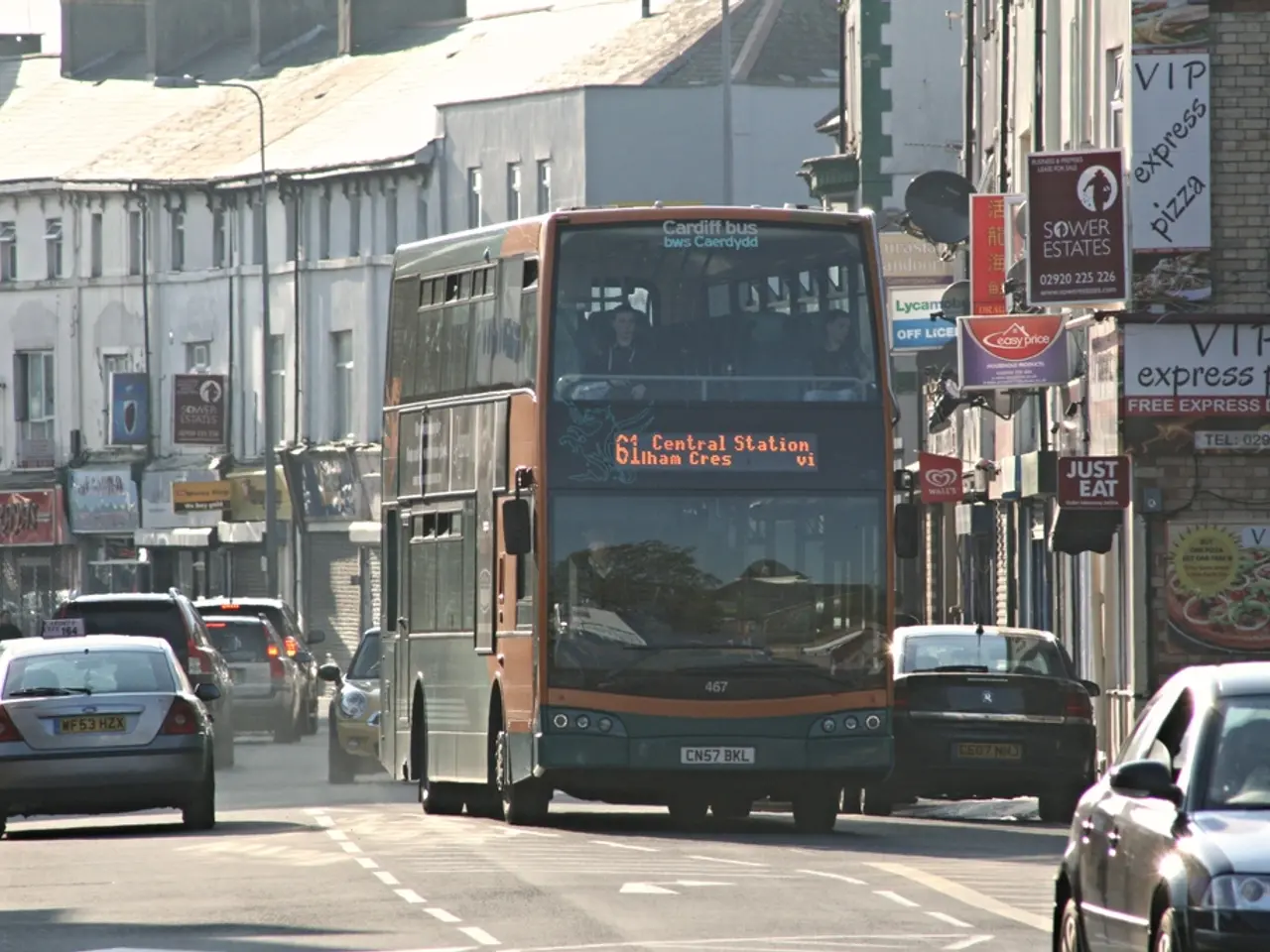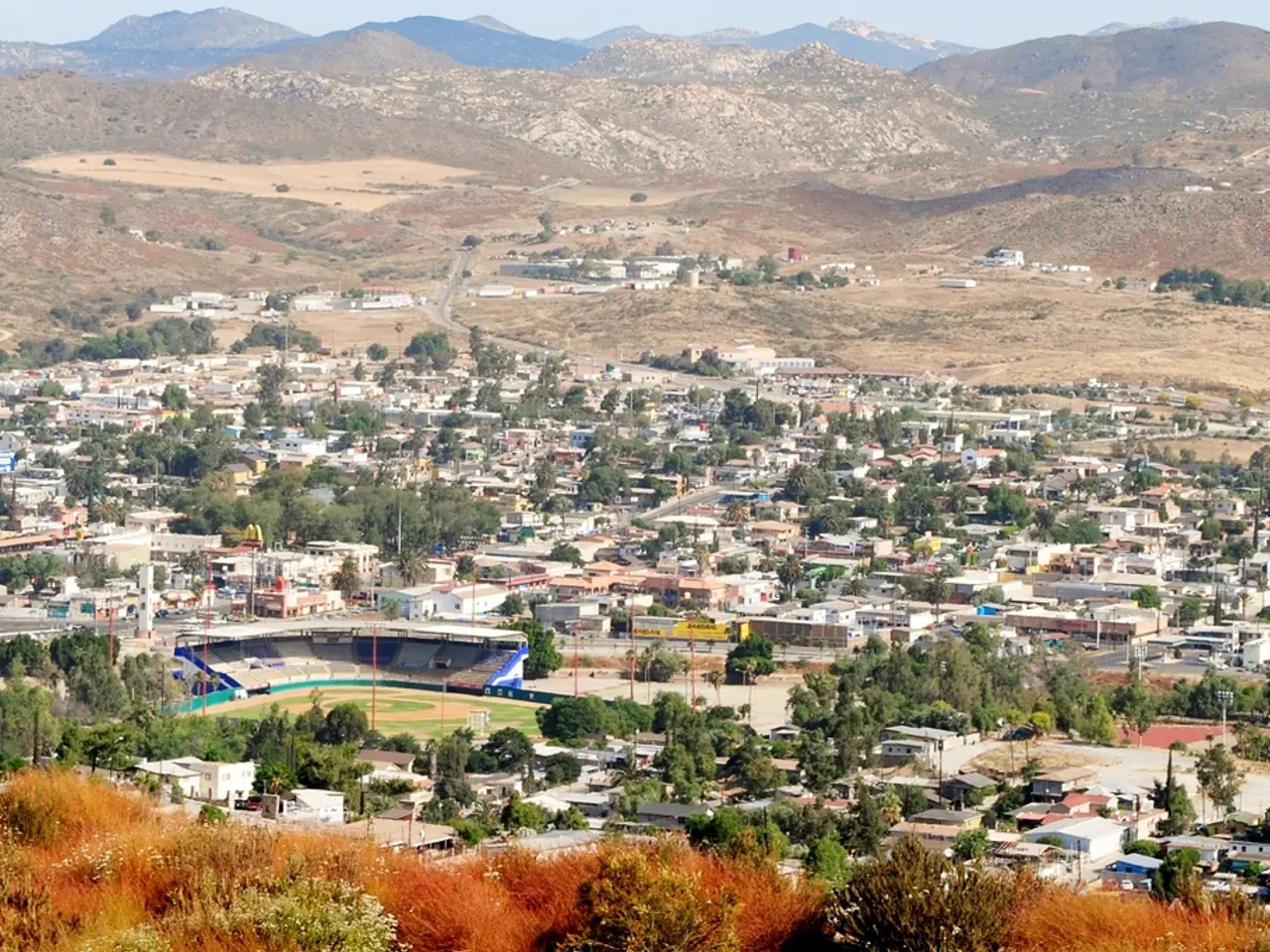US-EU Customs Agreement Causing Economic Billions in Loss for North Rhine-Westphalia
The recently agreed upon tariff deal between the USA and EU is projected to have a significant and negative impact on North Rhine-Westphalia (NRW), Germany's most export-oriented region. With the USA being the third most important export destination for NRW, after the Netherlands and France, the deal's 15% tariff on most EU imports could pose a significant challenge to the region's key industries.
NRW is heavily reliant on exports, particularly in sectors such as automotive and machinery. German industries warn that even a 15% tariff could have an "immense negative impact" on their operations and profitability. The overall EU GDP is predicted to decline by 0.2% to 0.8% due to the tariffs, with export-heavy German states like NRW among the hardest hit within the EU.
The tariffs distort trade flows and raise prices, potentially reducing US demand for German goods. To maintain market share, EU exporters may absorb some tariff costs, squeezing profit margins. Alternatively, they may pass the tariffs onto US consumers, leading to higher prices and declining demand. The actual impact in NRW will depend on these price elasticities across industries.
The recent euro appreciation worsens NRW's competitiveness against the US dollar, amplifying the impact of tariffs on NRW exports. The tariff deal may lead to a shift in pricing strategy for companies in NRW, with potential price adjustments resulting in products for the US market becoming cheaper and for the domestic market becoming more expensive.
Despite the potential temporary relief compared to prior threats of higher tariffs, the tariff deal likely results in increased costs and reduced export volume for NRW’s key industries, dampening regional economic growth. The Minister of Economics of NRW, Neubaur, has stated this loss, with the Association of Employers in NRW viewing the deal as a massive burden.
The long-term impacts of the tariff deal on the business community in NRW are still uncertain. The potential effects on employment in NRW are also currently uncertain. Other associations in NRW express similar sentiments about the tariff deal, with heated debates arising as a result.
The tariff deal was reached to avoid a trade war, but its unpredictable effects on the economy of NRW remain a cause for concern. An oversupply in Germany could lead to falling prices due to the tariff deal, further complicating the economic landscape. The tariff deal is predicted to cause a one billion euro loss for the economy of North Rhine-Westphalia.
[1] European Commission, "Impact Assessment of Proposed Tariffs on US Imports under Section 232 of the US Trade Expansion Act of 1962," 2018. [3] Handelsblatt, "Autos und Maschinen: US-Tarife für die deutsche Wirtschaft eine Katastrophe," 2018.
- The tariff deal between the USA and EU could have a substantial negative impact on the finance sector of North Rhine-Westphalia (NRW), Germany's most export-oriented region, due to the potential decrease in exports and increased costs in key industries like automotive and machinery.
- In the realm of business policy-and-legislation, the 15% tariff on EU imports to the USA could profoundly affect the profitability and operations of European businesses, such as those in NRW, leading to a potential decline in market share, squeezed profit margins, or higher prices for US consumers.
- The recent tariff deal is not only a matter of politics and general news but also a significant concern for the broader economy, as it may cause a one billion euro loss for the economy of North Rhine-Westphalia, while the long-term impacts and potential effects on employment in NRW remain uncertain.




